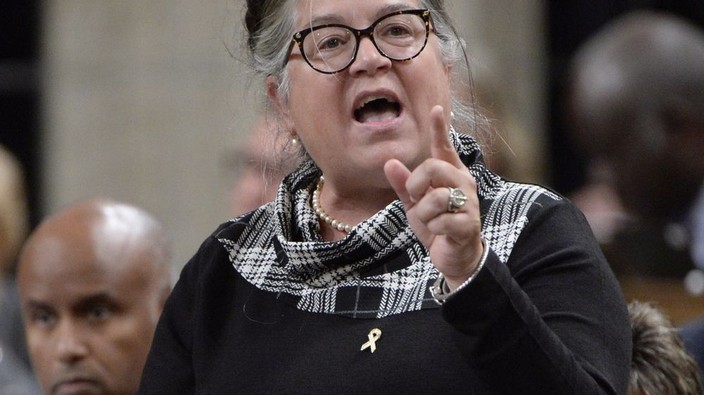opinion: many canadians with disabilities shut out of pandemic funding
the federal government recently announced a one-time, f...

national revenue minister diane lebouthillier was provided with recommendations for improving the funding process for people with disabilities.
adrian wyld
/
the canadian press
the federal government recently announced a one-time, federal tax-free payment for disability tax credit recipients intended to reduce financial barriers for persons with disabilities during the pandemic. this proposed bill failed to secure unanimous consent in the house of commons for debate. in part, persons with disabilities are getting caught in the political crossfire. however, known issues with eligibility for the dtc warrant the equity concerns raised by opposition parties.in some provinces, less than 40 per cent of individuals with qualifying disabilities are estimated to have cra-deemed eligibility to the dtc.there are important reasons why persons with disability need specific policy consideration during the pandemic. persons with disabilities are diverse and have different experiences and needs, but many are at risk of increased covid-19 infection rates and serious health complications. others experience barriers to pandemic preparedness such as accessing public health information, implementing infection control measures and accessing and navigating health and social services, either on their own or with a caregiver.to offset some of these barriers and increased costs persons with disabilities may experience during the pandemic, the government of canada announced a one-time payment of $600 provided to canadians with a valid dtc certificate ($300 to those with dtc and old age security pension and $100 for canadians with dtc, oas pension and the guaranteed income supplement).the issue is that many canadians with disability who should receive this funding are not dtc recipients and consequently won’t receive the support they need.this is a policy design problem — and the federal government knows the shortcomings of the dtc. it should not have been used as the basis for pandemic funding.the dtc, by design, is a federal non-refundable tax credit that recognizes the additional costs that persons with severe disabilities may face. it also acts as a screen or “gateway” for a range of other disability-related programs and services.in principle, the dtc could be an efficient way to administer pandemic related support. but the pandemic is again highlighting long-standing problems with the gateway function of the dtc. issues accessing the dtc include problems with the eligibility criteria and assessment, complex application procedures, inconsistent communications and co-ordination with other benefits.the core issues and recommendations for dtc reform have been well documented.we published analysis of the take up of the dtc in our university of calgary school of public policy report in 2018. a senate committee held hearings with stakeholders and published a report in 2018 entitled breaking down barriers, urging the government to reform the dtc.in response, the federal disability advisory committee was reinstated to provide advice to diane lebouthillier, minister of national revenue on dtc reform. the advisory committee then released an excellent report with specific and actionable recommendations titled enabling access to disability tax measures, documenting “wide-ranging concerns” from dtc applicants, current beneficiaries and health providers.little headway has been made since. and now canadians with disabilities are paying a high price at this critical time.what other options does the federal government have to help persons with disabilities?the alternative would be federal support provided to provinces to administer via their disability programs. this option would only provide funding to those eligible for these programs, which are often income tested.currently, persons with disabilities receiving provincial disability income assistance are deemed ineligible for the $2,000 a month cerb — or have had their funding clawed back at different rates depending on the province. this means most persons with disabilities on income assistance receive significantly less than the amount received by cerb recipients, and this varies by province.why should persons with disabilities in canada receive less pandemic support than everyone else in the country? as a signatory to the un convention on the rights of persons with disability and its guiding principles, the federal government has committed to equality of opportunity for canadians with disabilities. a one-time payment that is inaccessible to many simply isn’t sufficient to fulfil these commitments.it is time to follow through on recommended dtc reforms or develop a new policy mechanism for determining eligibility to reduce barriers for canadians with disabilities.in the meantime, emergency funding needs to be provided in a way that eligible persons with disabilities can access them.this is not about charity or politics; it is good public policy.dr. jennifer zwicker is deputy chief scientific officer for kids brain health network, assistant professor and director of health policy at the school of public policy at the university of calgary.don’t miss the latest on covid-19, reopening and life. subscribe to healthing’s daily newsletter coming out of covid.
 3 minute read
3 minute read





